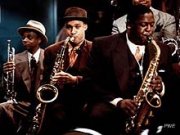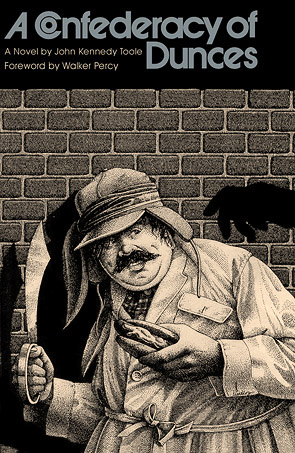This defense of what I consider Robert Altman’s most neglected major work appeared in the May 8, 1998 issue of the Chicago Reader. I’ve deliberately refrained from including any stills from Kansas City — its “parent” film, which I continue to dislike. — J.R.

Jazz ’34: Remembrances of Kansas City Swing
Rating *** A must see
Directed by Robert Altman
With Jesse Davis, David “Fathead” Newman, Ron Carter, Christian McBride, Tyrone Clark, Don Byron, Russell Malone, Mark Whitfield, Victor Lewis, Geri Allen, Cyrus Chestnut, James Carter, Craig Handy, David Murray, Joshua Redman, Curtis Fowles, Clark Gayton, Olu Dara, Nicholas Payton, James Zollar, and Kevin Mahogany.

The best Robert Altman feature in more years than I care to remember isn’t playing at a theater anywhere. A shortened version aired on PBS’s “Great Performances” series last year, but the movie only recently came to my attention when a video copy (distributed by Rhapsody Films) arrived in the mail. A fascinating adjunct to Altman’s much more ambitious and much less successful Kansas City (1996), Jazz ’34: Remembrances of Kansas City Swing is one of the best jazz films I’ve ever seen. It’s what its parent film promised but failed to deliver — all the more interesting because it’s neither a documentary nor a narrative but an eccentric hybrid. Read more
This book review appeared in the August 27, 1980 issue of The Soho News.
I was moved to repost this review some time ago by the generous recent reference to it made by Sam Jordison in the Guardian. –– J.R.

A Confederacy of Dunces
By John Kennedy Toole
Foreword by Walker Percy
Louisiana State University Press, $12.95
Is it by mere chance, or through some form of subtly earned tragic irony, that this brilliantly funny, reactionary novel is being published during a reactionary period, apparently about a decade and a half after it was written? God knows what it might have been like to read this in the mid-’60s. I suspect it would have been less warmly received — one reason, perhaps, why it wasn’t published way back then.
What I mean by Reactionary Humor is the boring literary schemes of Tom Sawyer, not the expedient escape tactics of Huck Finn. Broadly speaking, it’s what we learn to expect from the perennial antics of Blondie and Dagwood, Amos and Andy, Franny and Zooey, Laurel and Hardy (and Marie and Bruce, in Wallace Shawn’s recent play), not to mention W.C. Fields, Rainer Werner Fassbinder, Archie Bunker, and Woody Allen. Read more
Written for Sight and Sound‘s documentary film poll in their September 2014 issue, and posted online with partial corrections (and some new errors, such as spelling James Benning’s RR “Rr”). . Two unfortunate differences between my ten-best list and the one they published on paper is (1) the exclusion (through an oversight) of my 9th selection, Peter Thompson‘s Universal Hotel/Universal Citizen (although online they now list only Universal Hotel and exclude Universal Citizen) and (2) my specification that I was referring only to the French version of Rossellini’s India — a version that I vastly prefer to the Italian version, though more as fiction than for any “documentary” reasons (which applies to most or all of my other choices). This gives an added truth to James Benning’s own bold contribution to the same poll, well worth quoting in full: “Titanic (Cameron). This is my only vote: an amazing document of bad acting. And, I might add, all films are fictions.” — J.R.
SHOAH

There are documentary filmmakers who plant their stakes within existing traditions and those for whom cinema has to be reinvented. Claude Lanzmann clearly belongs in the latter category. Of course cinema already had to exist in order to allow Lanzmann to make Shoah (1985) — named after the Hebrew word for annihilation — but he also had to rethink what cinema could be. Read more




